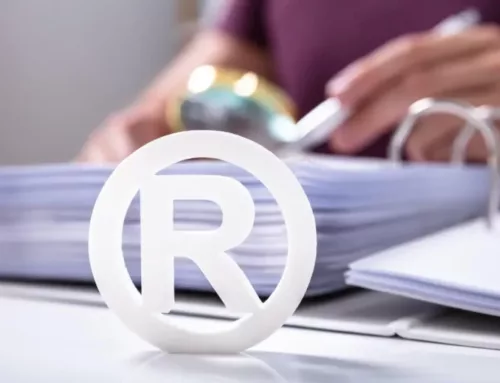Your company’s brand name is essential for its success. Trademarking plays an indispensable role in protecting the business. Trademark laws safeguard everything from the name, symbol, and slogan to the packaging. Unfortunately, it is common for agencies to make errors when trademarking an organization. When a company’s leaders do not follow trademark best practices, they risk wasting time, money, and energy on protecting their brand name in the future. Understanding some of the most common mistakes to watch for when trademarking a business will help you to protect your company. If you would like help avoiding trademark mistakes, consider contacting an experienced attorney at War IP Law, PLLC, at (202) 800-3754 to schedule a consultation.
Legal Protections of Trademarks
With proper registration, a trademark protects the company’s name and reputation. For the organization to successfully file for registration, it must connect the trademark to the specific products or services offered. The company must also choose services or goods when filing. Per the United States Patent and Trademark Office, a company must state the goods or services it provides (or plans on providing) when filing for registration. Specific identification legally prevents other companies from offering the same merchandise or services under a similar trademark without permission. The trademark protects the organization against counterfeiting and fraud.
Common Trademark Mistakes
There are many vital aspects of trademarking a business. Ideally, the process begins with completing a full search before registering the trademark. Trademark owners must also run searches after registration. Regular inspections will ensure that no other business infringes upon the company’s trademark rights. While it is possible to correct some mistakes after filing, others can cause significant issues and may require the company to start the entire process over again. Some of the most common trademark mistakes include:
- Poor choice of brand name
- Incorrect use of the TM symbol
- Failure to register the trademark
- Inadequate search of the trademark database
- Missed regular trademark searches and enforcement
- Failure to re-register trademark before it expires
Poor Choice of Brand Name
Choosing a creative name that suggests the nature of the brand is vital for successfully trademarking a business. The brand name must be distinctive and speak to the business’s target audience. When a company attempts to register a generic trademark, it often receives a denial from the United States Patent and Trademark Office. The United States Patent and Trademark office will also deny brand names that are too descriptive. The business owner must choose a solid name that is not too generic or descriptive for successful registration.
Incorrect Use of the TM Symbol
It is a common belief that adding the “TM” symbol will provide trademark protection. However, use of the “TM” symbol only offers limited protection. It safeguards the geographic boundaries within which the company operates. In addition, failing to properly register a trademark means that if another company files to register the same trademark for similar goods and/or services, the other company obtain legal rights that may prevent the growth of your company. Once registration is complete, then the business can add the ® symbol to its brand.
Failure To Register the Trademark
Every business with a trademark should go through the process of federal registration. Though it may take some time, a trademark gives the organization a sound legal foundation and helps build a powerful brand. The Lanham Act is a federal statute prohibiting trademark infringement in the United States. The Act provides protections for businesses that register their trademarks and those that do not. However, according to the United States General Services Administration, registering a trademark with the federal government means a higher degree of protection in court. Important re-registration deadlines to be aware of include:
- Between the fifth and sixth year after registration
- Between the ninth and tenth year
- Every ten years starting after the 19th year
Inadequate Search of the Trademark Database
Businesses should complete a comprehensive search before attempting to register a trademark. That search will ensure that the mark is not already in use by another company for similar goods and/or services. Searching the Trademark Electronic Search system will should ensure that there are no similar trademarks already in use by another company with conflicting goods and/or services.
Missed Regular Trademark Searches and Enforcement
The responsibility lies with the company to protect its trademarks. After the registration and approval process is complete, the business should perform regular searches to ensure that another company is not infringing upon its trademark rights. Failing to police its trademark can have many negative consequences for a business, including lowering the value of the company’s reputation and losing trademark rights.
Failure To Re-Register Trademark Before It Expires
After registration is complete, businesses must maintain the trademark and keep it active. One requirement is to re-register the trademark before the expiration date. The United States Patent and Trademark Office will cancel a trademark registration if a renewal date is missed.
Does Registering a Trademark Require an Attorney?
While the law does not require businesses inside the United States to have an attorney for trademark registration, the process can be challenging for those without experience. Failing to understand and follow the correct procedure could lead to a denial of registration, among other issues. Trademark applicants or those with registration must also provide and keep the domicile address up to date for all filings. They must prepare to act as an attorney for their organizations if they do not hire one to represent them. Companies that operate outside the United States, however, must have an attorney to help them with registering a trademark. A diligent attorney could:
- Provide essential legal advice throughout the process
- Conduct an extensive search before filing the trademark to search for similar registrations
- Ensure that a business prepares and files its application correctly
- Complete regular searches and enforcement of trademark rights
- Handle communications involved in the registration
- Provide peace of mind and protection from losing trademark rights and protections
Contact an Experienced Intellectual Property Attorney Today
These are examples of a few common mistakes business owners make while trademarking their brand. A company’s trademark is precious, and protecting it is crucial. A knowledgeable intellectual property lawyer could help you through the complex trademark process. The attorney could help to ensure that the business follows the correct procedure and avoids problems in the future. Registering a trademark is critical to a company’s success. The organization is notifying other businesses of its ownership and letting the public know what the company offers. If you need help with registration and avoiding trademark mistakes, consider calling a knowledgeable attorney at War IP Law, PLLC, at (202) 800-3754 to learn more about your legal rights.






